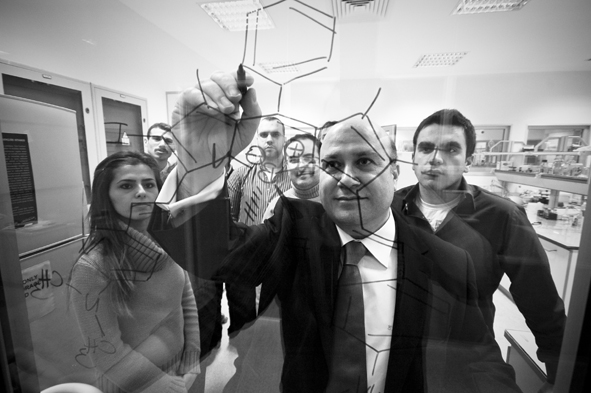Prof. Engin Umut Akkaya Invents Molecules Capable of Binary Operations
The winner of the prestigious TÜBİTAK Science Award of 2009, Prof. Engin Umut Akkaya of the Department of Chemistry and UNAM, has developed a rational methodology in synthesizing a series of information processing molecules capable of carrying out binary addition or subtraction through chemical reactions.
“The invention is a milestone toward developing specialized computers made of interacting molecular components.”
The Journal of the American Chemical Society, one of the most prestigious publications in the field of chemistry, featured Prof. Akkaya’s invention on its cover. Use of molecules as components in computing is expected to bring us closer to massively parallel, highly efficient “wet computers.” The human brain is a prime example of a wet computer. In addition, as opposed to current silicon-based technologies, computing based on molecules speaks the same “language” as the cells. Resulting output may produce molecules that could interact directly with biochemical processes in health and in disease. This, in turn, is expected to open the way to significant therapeutic methodologies. “These molecular assemblies will not be designed to do all the things that today’s semi-conductor based computers do. Instead, they will be expected to do things that today’s computers cannot do, such as working inside the cell and interacting with other molecules directly,” said Akkaya, who underlined that the journal had published only seven articles from Turkey in its 132-year history.
Five of these were the results of his lab’s recent research.
Akkaya’s team, meanwhile, is also focusing on developing molecular designs that can either be controlled externally or can be programmed to fight disease at a molecular level.
